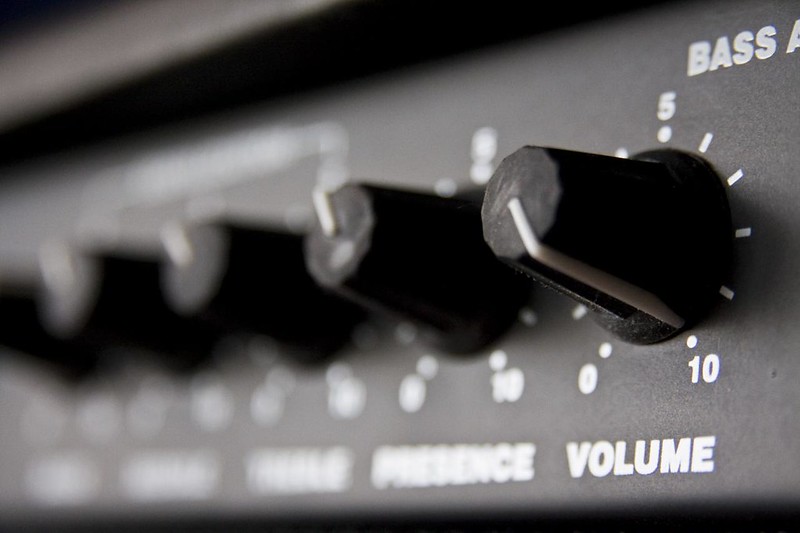Given that ‘online’ is often spoken of in deficit terms when compared to ‘normal’ working you might have expected a feeling of attenuation, something lesser, during COVID-19, but somehow everything feels amplified, more extreme. It’s as if the sudden shift to online has turned the volume up on themes and issues which were always there but in a quieter way.

This is also playing out on an individual level, as we find ourselves working from our, radically different, private contexts without the ‘levelling’ shared space of the campus or office. We are densely connected through the technology but have less shared ground. Our cultural and physical conception of ‘work’ has been redistributed across a myriad of differences. This is a moment in which we can re-imagine our intersecting spaces and practices of work in new ways which are kinder, more inclusive and not only tied to the physical.
Digital amplification
In a session I teach on our Academic Practice programme I ask the question “What aspects of the digital environment are unique?”. There are plenty of good answers to this and it always turns into a lively opening discussion, partly because you can find pre-digital examples of most things. The two answers I tend to focus on are:
- Anyone with a connection can ‘publish’ – the digital gives us a two-way street where there was once only the one-way system of broadcast and print media.
- Everything is hyper-connected in the forms of a network supporting a churn of hierarchies – as apposed to a set of distinct hierarchies.
The effects of these two factors are not fundamentally new but importantly they are massively amplified. I can post a Tweet which hundreds of thousands can have read within minutes if it goes viral. I can connect with individuals and groups almost instantly. I can find myself in an online meeting before I’ve had time to think…
This is what I believe many of us are experiencing right now, an amplification of the way we experience work. No longer contained by the rituals and expectations we had implicitly agreed on, work has become restless. It’s now variously exhilarating, exhausting, empowering and stressful. It’s less tactile and less sensory but cognitively and emotionally the volume has been turned to 11.
Outrun by our own technology
Our physical spaces had agreed modes of interaction (or lack of interaction in some cases) which were as much a sociocultural agreement embodying particular power dynamics as they were an effect of the affordances of the space. We even got to the point that the names of the rooms themselves indicated the expected mode – lecture theatre, seminar room, the library, the studio etc. This made things predictable, it limited the ‘volume’ but tied us to ways of working enmeshed with historical notions of authority and power most of us would prefer to move on from. All of that has gone now, hasn’t it?
The amplification I’m speaking of comes from the introduction of technologies which reshape what it means to interact in ways which go beyond our slow-to-change models of the world – models which are still tied to the physical even now. We have been outrun by our own technologies for over 100 years. The First World War being a key example of where we were shocked by the destructive force – the potential for explosive change – of what we had invented. Right now we are being outrun by the level of connectivity and new modes of communication our digital technology provides. This is why things feel so intense even while we have lost so much.
Letting go of physical thinking
The intensity created by this amplification comes about as much from the difficulty we have in letting go of our models of work than it is to do with our ability to grasp the technology. We have ‘proper’, known, ways of working which are constantly being extended and confused by our shifting technological contexts – a new feature arrives without warning and suddenly meetings work differently. A text chat bar appears at the side of the speaker but how should we use it?
I was in a discussion about all the opportunities for interaction that are now available now that a conference I help run will be fully online but this had to be weighed against the expectations of delegates that they would experience a ‘keynote’.
My hope is that we will actively negotiate the value of our work, of what we can contribute and continue to move away from paradigms which were defined by the name of physical rooms. What’s important to recognise is that for most of us things have got louder with the move online and quieting, shared, concepts such as ‘office’, ‘campus’ or ‘university’ feel distant and abstract.
Dr Ann Lawless May 21, 2020
Thanks David for your amplified thoughts. I was in a meeting today with Australia sociologists reflecting on loneliness and the digital and thought “wish we had David O White here, he would help us unpick this….”
Appreciate your open sharing
Dr Ann Lawless
Fremantle, Western Australia, Australia